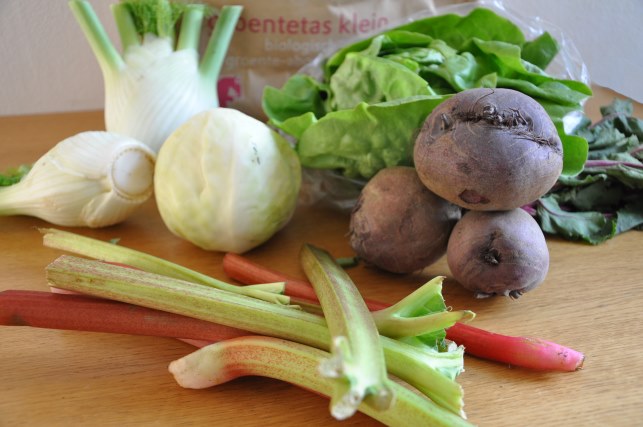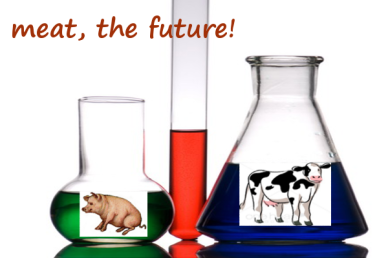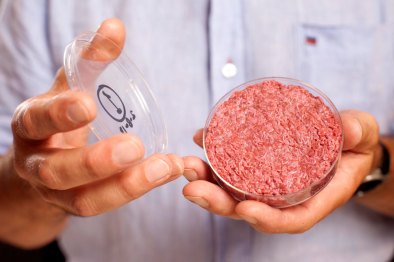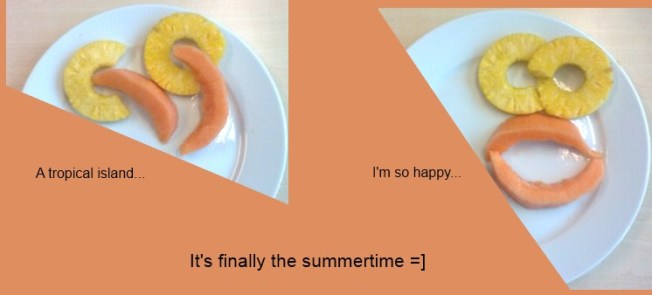Hi,
I was inspired to write this post after reading an article in our local newspaper “De Gelderlander” and another one “Consumenten gids”. Both of them covered the topic of minced meat and the fat percentage.

[a]
The fact that quality of minced meat from supermarkets is far away from being ideal is something that I knew already without reading these articles. What surprised me in those two articles was note about the fat percentage. I am sure you recognize the problem of extended fat content (and kind of weird watery liquid) going out of your minced meat when you fry or bake it which reduces weight of your final dish surely by 1/4. That all are the tricks of producers to increase minced meat weight. They perfectly know how to make it heavier. I don’t know how this looks in other countries since I live in the Netherlands but here supermarkets have introduced so called lean minced meat. I’ve tried it couple of times but I haven’t been that much impressed. Now I know why…
According to European regulations such as (EC) No 1162/2009 or (EU) No 1169/2011 there are specific requirements concerning the designation of minced meat – see table below [1].
For regular minced meat it may contain between 20-30% fat. That’s quite a lot. It means, after thermal processing, you’ll loose about 1/5, 1/4, or 1/3 of the original volume.
According to Dutch legal norms the maximum fat percentage in minced meat is 25%, while in its lean version 15% [2]. The Consumers Association “Oprecht Consumentenbond” has checked 59 types of minced meat. The first thing they found out is that a regular minced meat from a butcher is less fat than lean minced meat from a supermarket. For example minced meat containing pigmeat had on average 19% of fat, minced pure beef had 17%, while the ones from a butcher had 13% less fat. Incredible!
I recall my first visits in Dutch supermarkets. I was really shocked and disappointed about poor meat quality. That was so contradicted to what I’ve imagined after seeing travel programs, or travel guides about the Netherlands which showed happy cows chewing grass, standing in the sun, etc. Lovely pictures…
 [b]
[b]
So why then the quality is so bad? I think that is caused by multiple reasons. One of them may be increasing World population and overcrowding. That force to produce more. Overcrowd and race to success encourages producers to invest in cheap agriculture, manufacture and food processing. Personally I also thing that many people don’t care what food they eat, not speaking of quality. The trend of price reductions makes people prone to buy more of worse quality than less of good quality. I could list couple more and more…
 [c]
[c]
Luckily there are organisations that promote healthy lifestyle and eating habits such us Dutch feeding center “Voedingscentrum”. Accorting to its drive five initiative so called “Schijf van Vijf” only meat having less than 10% fat is advised to consume [2]. Mostly because animal fat contains lots of saturated fat which is unhealthy to people due to increasing bad cholesterol (LDL). “Voedingscentrum” also advise to reduce quantity of meat consumption and heavily promote vegetarian dishes.
What do I do? Since couple of years I reduce quantity of meat and since couple of months I consume meat only from butcher… What actually surprised me was that the prices aren’t higher. Yes, it costs me extra time and without a car I couldn’t reach that place but luckily I have one and believe me, the quality of meat is so much better. No extra fat added, any other animal leftovers, water or chemicals to reduce the costs. This meat taste real and good. You go and pay fair price. There is no-one in between. This in fact is a win-win situation. I recall reading few months ago an article, also in “De Gelderlander”, which mentioned that there are less and less butchers in the Netherlands because consumers want cheaper food and don’t care that much about quality. That is also the reason why I want to support butchers. I also believe meat available at small slaughterhouse is from animals raised and treated in better way than the ones used for meat sold to supermarkets.
Tip? Start eating less meat, buy meat from butchers. If you have not that possibility and you still buy minced meat in supermarket choose the one that is animal friendly (ironic statement) and buy lean minced meat with the lowest fat percentage e.g. “tartare” [2].
Off-topic: Speaking of happy cows mentioned above. Do you remember Bovine Spongiform Encephalopathy (BSE), commonly known as mad cow disease? If you doubt about your cow and its health state, click here to learn more about how to recognize a healthy from a mad cow 🙂
 [d]
[d]
Curio – to Dutch speaking readers – fat percentage in meat from Dutch supermarket:
Ok, that is it… I hope I made you start thinking about what meat you eat and planted a seed to your future healthier change.
Greetings,
Anna *OnMyDish.wordpress.com*
Thanks for being with me. Please share this article if it made you thinking. If you are interested in my other posts, I encourage you to make use of “Post Index” where you can locate and learn about all the posts on my blog.
Sources:
[1] Regulation (EU) No 1169/2011 of the European Parliament and of the Council of 25 October 2011 on the provision of food information to consumers…, Annex 6, Part B.
[2] Consumenten Gids, No.4, April 2017
Picture sources:
[a] http://www.biojournaal.nl/nieuws/2013/0313/Gehakt.jpg
[b] https://annabeljeuring.nl/sites/default/files/foto/reclame/koeien-in-de-ochtend.jpg
[c] http://www.voedingscentrum.nl/nl/gezond-eten-met-de-schijf-van-vijf.aspx
[d] https://www.youtube.com/watch?v=UAGoyjzSYZY
[f] https://assets.greenrushdaily.com/wp-content/uploads/2016/06/Germinating-Cannabis-Seeds-hero.jpg























